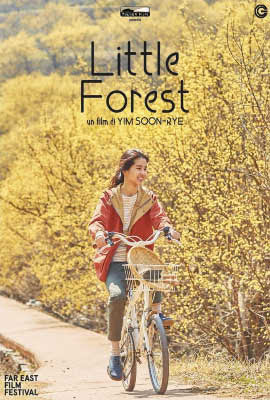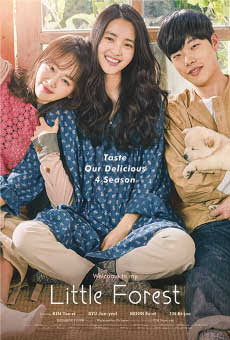Nothing much happens in
this Korean film other than the changing of the seasons. But it is a healing
process. Not so much for the characters in the film but for the audience.
It is remarkable how the film does this in subtle quiet strokes. It sneaks
up on you with friendships, conversations, cooking, eating and lyrical images
of the countryside. Female director Yim Soon-rye patiently builds this mood
one seed at a time, one meal at a time, one reflection at a time, one flashback
at a time to create this spiritual connection to nature, to harmony, to what
fills our needs. If people feel a bit battered by the world, by the division,
by the antagonism, this will work its way into your soul and soothe it. Lower
your blood pressure. And make you very hungry! Hunger is where the heart
is and the heart is where home is. There is a lot of cooking and eating going
on here and it is part of that healing process. It is done with such care
as food is prepared and eaten with relish.
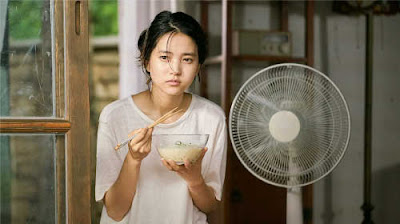
Hye-won (Kim Tae-ri in a wonderfully natural performance) has failed in her
university exam in Seoul and decided to go stay at the home where she grew
up. An isolated small rural house in the country in which it takes her 30-minutes
to bicycle into the nearest town for provisions. Her mother (Moon So-ri)
has left without much of an explanation and she is on her own. It is winter
and cold with frost on the ground. With no food stocked up, Hye-won goes
outside, digs up frozen cabbages and makes a soup that warms her and brings
back memories. It is the beginning of her journey through cooking and finding
herself. Two of her high school companions show up and renew their friendship.
Their nights are passed in her home eating and talking. When the food is
too spicy they cry, when they drink too much of her fermented alcohol, they
laugh.
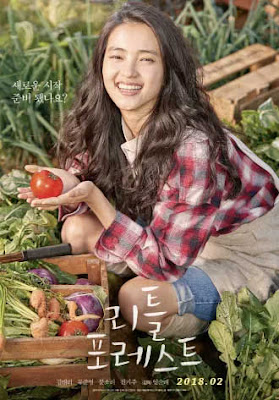
She begins to grow food for her recipes - onions, potatoes - and explains
to us through her inner narrative exactly what she is doing. Gives us bits
of wisdom - "if dried persimmons taste this good, it means it is deep into
winter". "A ripe tomato can be thrown anywhere and the seeds will take root".
The pacing is as lazy as a summer afternoon. Told in bits and pieces. Hye-won
simply sitting on the steps with the fan blowing behind her and eating noodles.
Or showing us the best way to grow sweet onions. The house has no internet,
no tv - time passes the old fashioned way, through work, thought and friends.
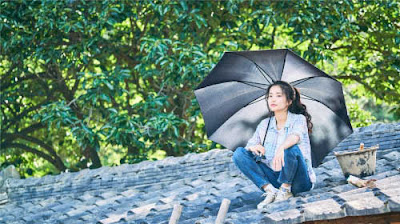
Underneath all of this is her relationship with her mother and she often
flashes back to scenes with her - of her mother cooking, talking about food
and nature, of how to do things. Her father died when she was a child and
it was her mother who brought her up in the country. She has absorbed it
all. Her mother sends her a letter with no return address - all it has inside
is a recipe for potato dumplings. She proceeds to make them. It feels so
unusual to watch a film so at peace with it itself. There is no attempt at
drama, no hysterics, no romance - just life walking by and a girl becoming
through her own choices the woman her mother wants her to be. Independent,
tough and a good cook! Have food on hand when you watch it. You will get
hungry.
